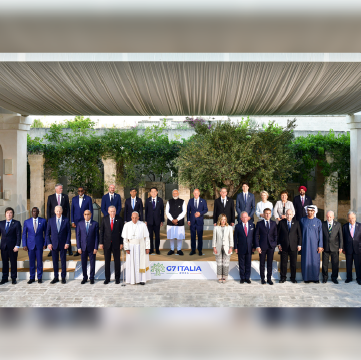Family offices, private wealth management advisory firms catering to ultra-high-net-worth families, have long been seen as prestigious and secure. However, a disturbing trend has emerged: the rise of fake family offices. These fraudulent entities exploit the veneer of legitimacy to engage in illicit activities, from money laundering to fraud. This article explores the risks posed by fake family offices, with a focus on Singapore, Hong Kong, and other prominent financial hubs, and outlines how regulators and companies can mitigate these risks.
Understanding Fake Family Offices
Fake family offices mimic legitimate ones by presenting themselves as exclusive wealth management firms. They typically target affluent individuals and institutions with promises of bespoke investment strategies, wealth preservation, and discreet financial services. In reality, they often engage in:
Money Laundering: Using complex transactions to obscure the origins of illicit funds.
Fraud: Offering non-existent or overvalued investments.
Tax Evasion: Exploiting legal loopholes to hide assets and evade taxes.
These activities can tarnish the reputation of legitimate financial centers, destabilize markets, and erode investor confidence.
The Appeal of Singapore and Hong Kong
Singapore and Hong Kong are attractive to family offices due to their robust financial infrastructure, favorable tax regimes, and strategic geographic locations. However, their prominence also makes them targets for fraudulent activities.
Singapore
Singapore has rapidly become a global family office hub, with over 1,100 family offices registered in 2023. The city-state’s appeal lies in its political stability, favorable tax incentives, and strong regulatory framework. However, the surge in family offices has also attracted unscrupulous entities.
Case Study: In 2022, a fake family office in Singapore was uncovered after authorities found it had been facilitating illegal money transfers. It posed as a legitimate advisory service but was actually involved in laundering proceeds from organized crime. This incident prompted a review of the verification processes for new family offices, leading to stricter due diligence requirements and enhanced monitoring by the Monetary Authority of Singapore (MAS).
Hong Kong
Hong Kong’s status as a gateway to China and its sophisticated financial ecosystem make it a magnet for family offices. Yet, it too has faced challenges with fraudulent entities exploiting its reputation.
Case Study: A fake family office in Hong Kong, operating since 2021, was exposed for offering fraudulent investment products. It promised high returns but was, in reality, a Ponzi scheme. The Hong Kong Monetary Authority (HKMA) responded by increasing collaboration with international regulators and enhancing transparency requirements for family offices, such as mandatory reporting of large transactions and beneficial ownership details.
Global Perspectives and Risks
The risk of fake family offices is not confined to Asia. Other financial hubs, such as Switzerland, the United States, and the United Kingdom, also face similar threats.
Switzerland
Switzerland, with its legacy of banking secrecy and private wealth management, is an attractive location for family offices. However, its regulatory environment has evolved significantly to combat illicit financial activities. Swiss authorities have implemented stringent anti-money laundering (AML) regulations and require family offices to adhere to strict reporting standards.
Case Study: A Swiss-based fake family office was dismantled in 2020 after it was found to be laundering money for a criminal network. The incident highlighted gaps in the enforcement of AML regulations, prompting a nationwide audit of family office operations and stricter compliance checks.
United States
In the U.S., the rise of family offices has been accompanied by increased scrutiny. The Securities and Exchange Commission (SEC) has issued warnings about fraudulent family offices and emphasizes the need for rigorous due diligence.
Case Study: In 2021, a fake family office in New York was shut down for defrauding investors out of millions. It operated under the guise of a legitimate wealth management firm but diverted client funds for personal use. This case led to the SEC revising its guidelines on family office registration and enhancing investor education about the risks of dealing with unverified entities.
Managing the Risk: Regulatory and Corporate Measures
To counter the threat of fake family offices, a multifaceted approach involving regulators, financial institutions, and investors is essential.
Regulatory Measures
Enhanced Due Diligence: Regulators should enforce stringent verification processes for new family offices. This includes thorough background checks, verification of beneficial ownership, and assessments of financial integrity.
Improved Transparency: Mandating greater transparency in family office operations can deter fraudulent activities. This includes public disclosure of key financial data and mandatory reporting of significant transactions.
International Cooperation: Cross-border cooperation among regulators can help track and dismantle fake family offices operating internationally. Information sharing and joint investigations can enhance the effectiveness of regulatory actions.
Corporate Measures
Robust Compliance Programs: Financial institutions should implement comprehensive compliance programs to detect and report suspicious activities related to family offices. This includes regular audits, employee training, and automated monitoring systems.
Investor Education: Educating potential clients about the risks of fake family offices and how to identify legitimate entities can reduce vulnerability to fraud. This includes providing resources on due diligence and warning signs of fraudulent operations.
Technology Utilization: Leveraging technology, such as blockchain for transaction transparency and artificial intelligence for risk assessment, can enhance the ability to detect and prevent fraud.
Conclusion
The rise of fake family offices poses significant risks to financial markets and investor trust. As these fraudulent entities become more sophisticated, regulators and companies must adopt proactive measures to mitigate the threat. By enhancing due diligence, improving transparency, and fostering international cooperation, the integrity of the family office sector can be safeguarded. Financial hubs like Singapore, Hong Kong, and others must remain vigilant and adaptive, ensuring that their prestigious status is not undermined by the deceptive practices of a few.















